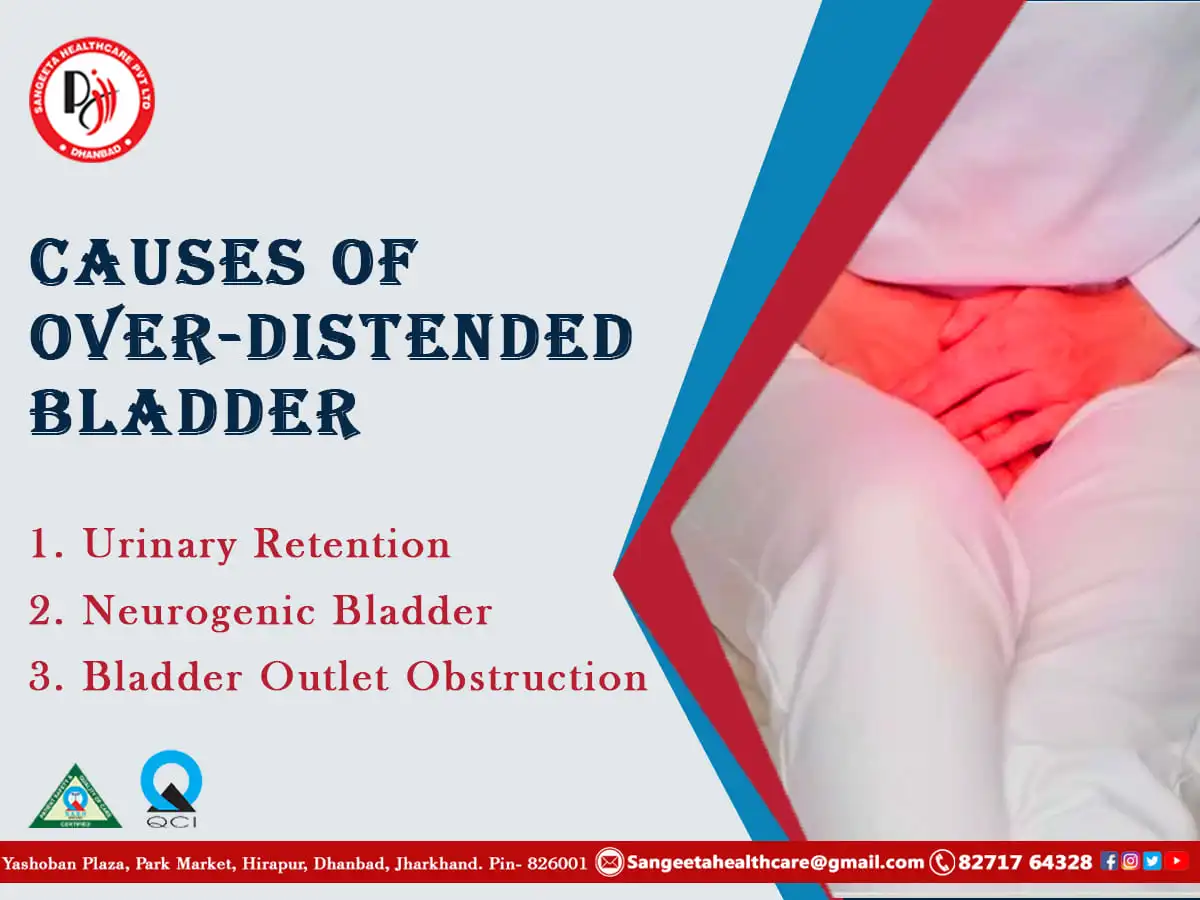Relieve, Restore, Renew: Transforming Comfort for Partially Distended Urinary Bladder.

Distended Urinary Bladder
The urinary bladder plays a crucial role in the excretory system, storing urine until it is ready to be expelled from the body. However, certain conditions can lead to the distension of the urinary bladder, causing discomfort and potential health issues. In this blog post, we will explore the concept of a distended urinary bladder, its causes, symptoms, and available treatment options.
Understanding a Distended Urinary Bladder:
A distended urinary bladder refers to a condition where the bladder becomes overfilled with urine, causing it to stretch beyond its normal capacity. This can occur due to various reasons, and it is often associated with underlying medical conditions affecting the urinary system.
Causes of a Distended Urinary Bladder:
- Urinary Retention:
– A common cause of bladder distension is urinary retention, where the bladder is unable to empty completely. This can result from an obstruction in the urinary tract, such as an enlarged prostate in men or urinary stones.
- Neurological Disorders:
Certain neurological conditions, such as spinal cord injuries or multiple sclerosis, can interfere with the normal functioning of the bladder muscles, leading to incomplete emptying and distension.
- Bladder Outlet Obstruction:
Conditions like urethral stricture or tumors can create a blockage at the outlet of the bladder, preventing proper urine flow and causing the bladder to distend.
Distended Urinary Bladder Symptoms:
- Abdominal Discomfort:
Patients with a distended bladder often experience discomfort or pain in the lower abdomen. This can range from mild to severe, depending on the degree of distention.
- Urinary Urgency:
The constant feeling of urgency to urinate, even when the bladder is full, is a common symptom.
- Difficulty Initiating Urination:
Individuals may struggle to start the urine stream, despite the urge to urinate.
- Overflow Incontinence:
Overflow incontinence, where small amounts of urine leak continuously, is another indicator of bladder distension.
Understanding Over-Distended Bladder:
An over-distended urinary bladder occurs when the bladder is stretched beyond its normal capacity, often holding an excessive amount of urine. This condition can arise due to various factors that impair the normal emptying of the bladder.
Causes of Over-Distended Bladder:
- Urinary Retention:
Chronic urinary retention, where the bladder is unable to empty fully, can lead to over-distension. Causes include an enlarged prostate in men, urethral stricture, or neurological disorders affecting bladder function.
- Neurogenic Bladder:
Conditions like spinal cord injuries, multiple sclerosis, or nerve damage can disrupt the normal signaling between the brain and the bladder, resulting in inadequate emptying and over-distension.
- Bladder Outlet Obstruction
Structural issues such as tumors, bladder stones, or urethral strictures can create obstacles that impede the flow of urine, causing the bladder to over-distend.
Risks Associated with Over-Distended Bladder:
- Damage to Bladder Muscles: Prolonged over-distension can lead to damage of the bladder muscles, affecting their ability to contract and expel urine effectively.
- Urinary Tract Infections (UTIs): A distended bladder may increase the risk of UTIs, as stagnant urine provides an environment conducive to bacterial growth.
- Renal Complications: Severe cases of over-distension can impact kidney function, potentially leading to kidney damage or other renal complications.
- Bladder Rupture: In extreme cases, over-distension can cause the bladder to rupture, a medical emergency requiring immediate intervention.
Treatment Options:
- Catheterization: Catheterization involves inserting a thin tube into the bladder to drain urine. This method is effective for relieving urinary retention and preventing complications.
- Medication: Alpha-blockers or anticholinergic medications may be prescribed to relax the muscles around the bladder or improve bladder contractions.
- Bladder Training: This involves retraining the bladder to hold urine for longer periods and promoting regular, controlled voiding.
- Pelvic Floor Exercises: Kegel exercises can strengthen pelvic floor muscles, improving bladder control.
- Surgery: In cases of structural issues or severe obstruction, surgical intervention may be necessary to correct the underlying problem.
- Management of Underlying Conditions: Treating conditions like an enlarged prostate, neurological disorders, or infections is crucial to managing a partially distended bladder.
- Lifestyle Modifications: Adjustments such as avoiding irritants like caffeine and alcohol, maintaining a healthy weight, and staying hydrated can contribute to overall bladder health.
Preventive Measures:
- Regular Check-ups: Periodic health check-ups can help identify and address potential bladder issues early on.
- Hygiene Practices: Practicing good hygiene can reduce the risk of urinary tract infections, a common contributor to bladder issues.
- Stay Hydrated: Adequate hydration is essential for overall bladder health. However, excessive consumption of irritants like caffeine should be avoided.
A distended urinary bladder can significantly impact an individual’s quality of life, but with timely diagnosis and appropriate treatment, many underlying issues can be effectively addressed. If you or someone you know is experiencing symptoms associated with bladder distension, seeking prompt medical attention is crucial for proper evaluation and management. Understanding the causes, symptoms, and available treatment options is the first step toward maintaining a healthy urinary system.


